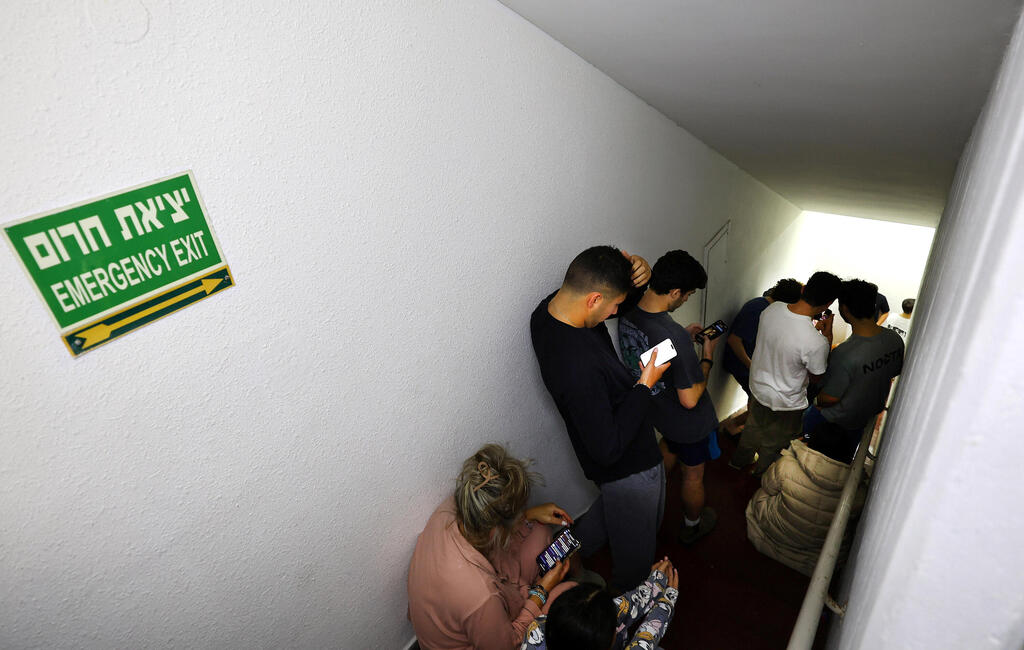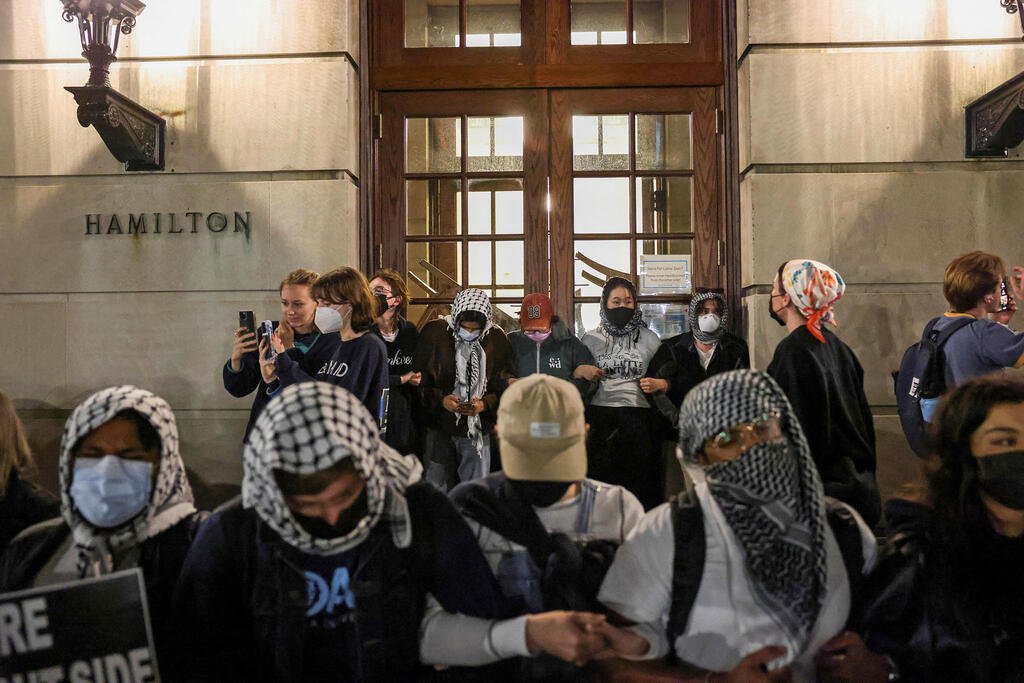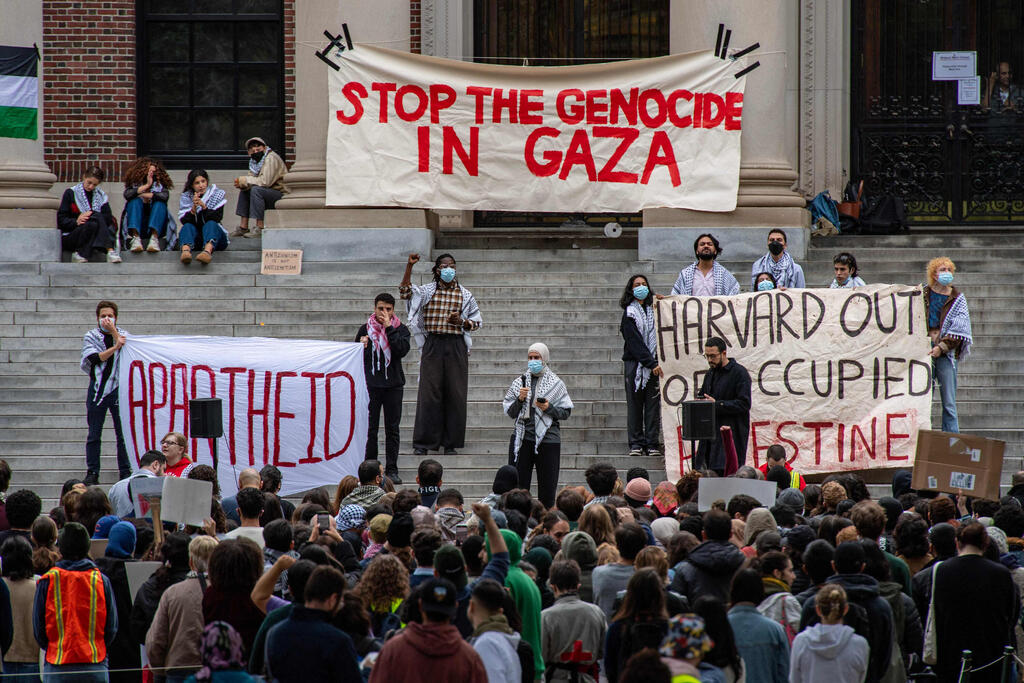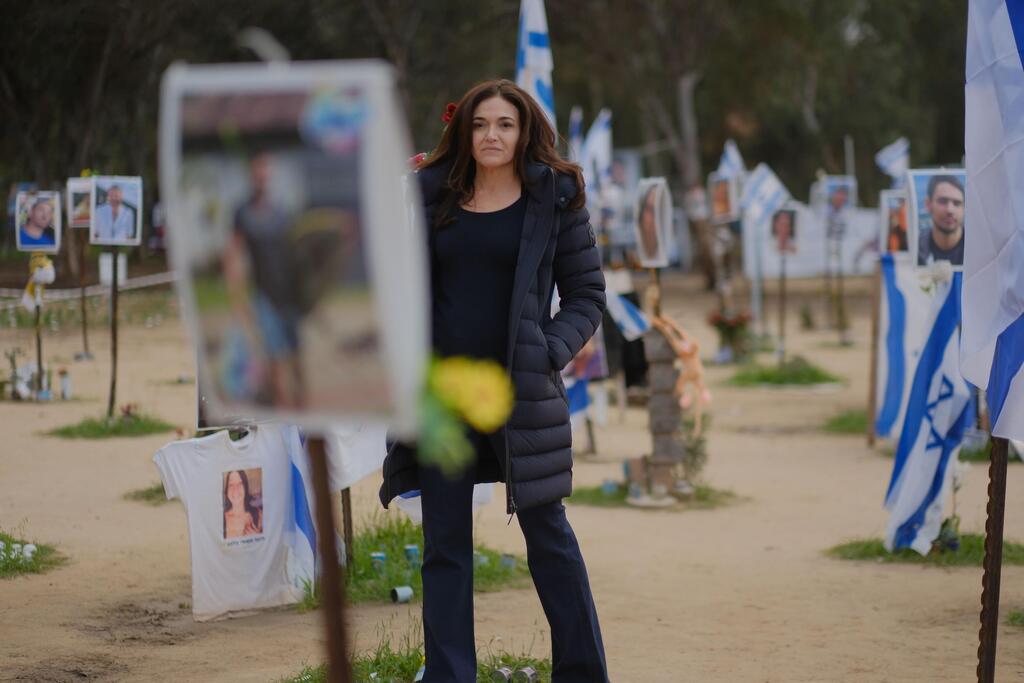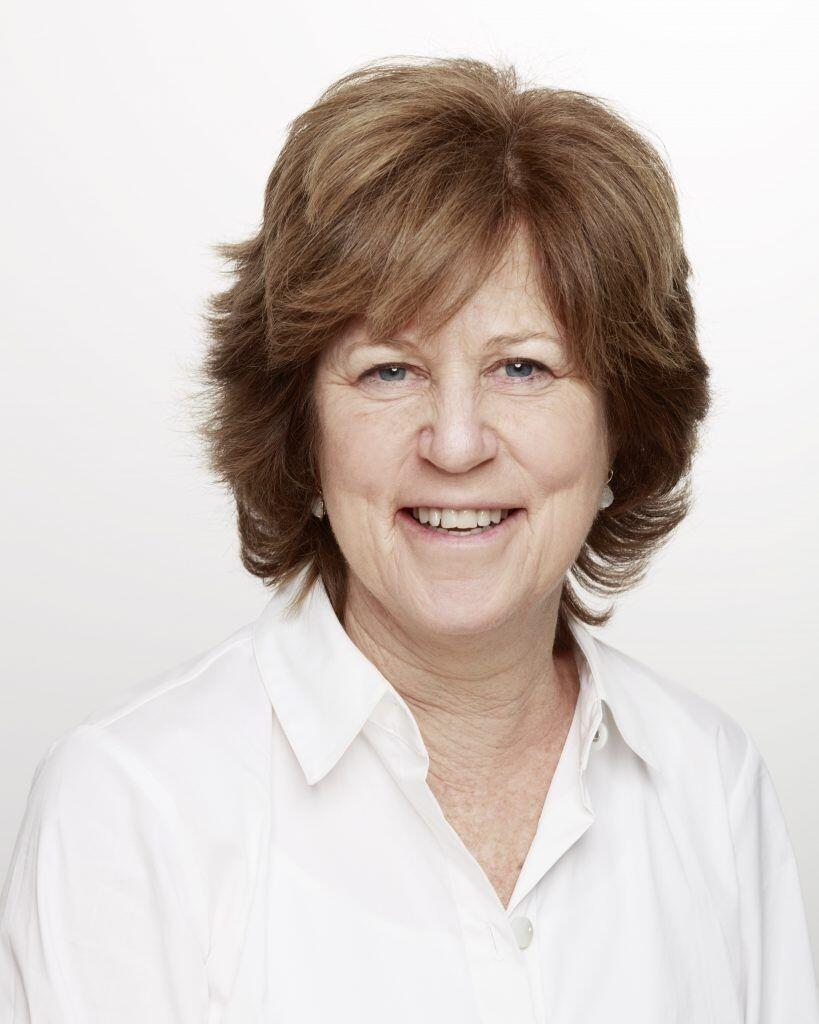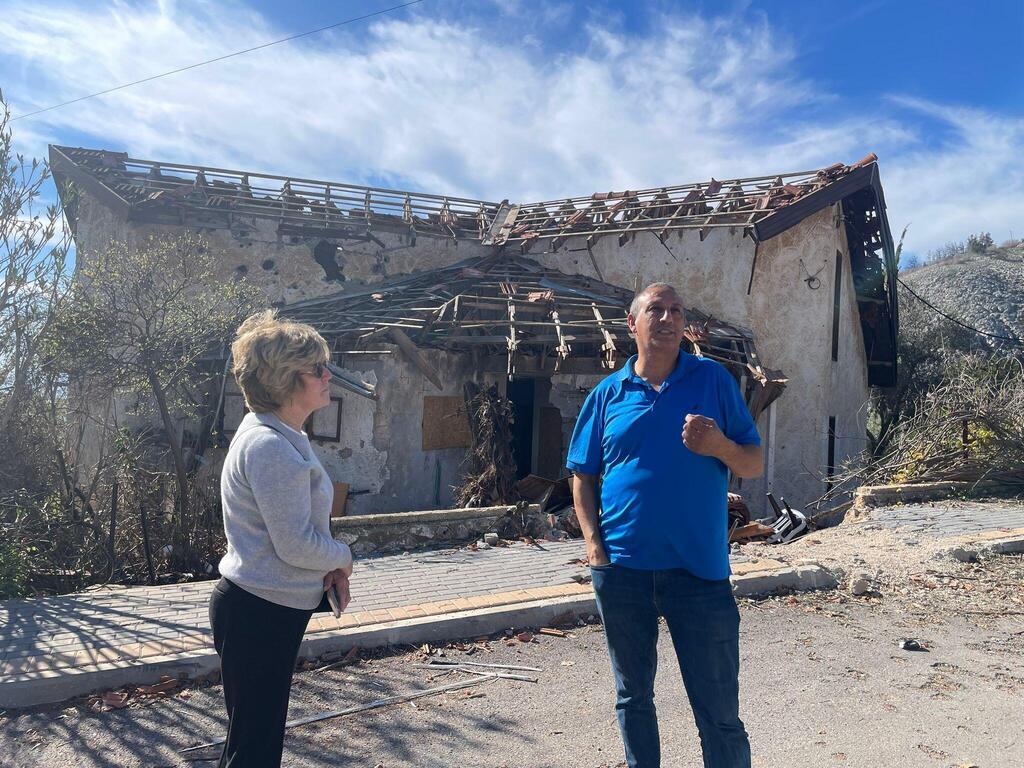Julie Platt has heard all the stories surrounding October 7, 2023, and the war in Israel. She personally visited the south and the north, committed to rebuilding communities and helped people return to their homes.
She closely followed the injured and those suffering from psychological trauma, understanding the depth of the tragedy. But nothing prepared her for the moment when a siren caught her in the middle of Tel Aviv, forcing her to take cover deep inside a parking lot.
"I burst into tears. I wasn't afraid for myself, nor was I truly worried about the rockets. I cried because this isn't fair to you, and no one deserves to live like this," says Platt, chair of the Jewish Federations of North America. "I saw people who are already used to it—going into a shelter for a few minutes and then coming out as if nothing happened. This is not life, and you shouldn't have to get used to it. That's why I cried—because it's simply horrific. One cannot live in a world of constant sirens."
Platt serves in her role during one of the most turbulent periods for Jewish communities and Israel. In mid-2023, she was "called to duty" for a temporary role as interim chair of the University of Pennsylvania (UPenn) after the university’s president, Liz Magill, resigned, along with the chair of the Board of Trustees, Scott Bok.
Do calls for the genocide of Jews count as bullying and harassment? Depends on the context
Magill was forced to step down following the infamous congressional hearing in which university presidents failed to provide clear answers regarding their handling of campus antisemitism and the aggressive actions of pro-Palestinian activists against Israelis and Jews. Republican representative from New York, Elise Stefanik, asked Magill whether calls for genocide against Jews were considered bullying or violence. Magill's response at the time was "It depends on the context."
'Universities were caught unprepared'
Regarding the threatening behavior of pro-Palestinian activists on U.S. college campuses, Platt believes that such extreme incidents are unlikely to recur, as universities have now learned how to handle protests and have established rules governing their time, location and manner.
"Universities were caught unprepared, and we saw the harsh consequences. Now, things are much clearer, and students know what is and isn’t allowed," she explains. "For instance, during class hours, entering buildings and disrupting lectures is prohibited. The locations for protests are designated and restricted. Campus police and security forces will enforce all violations of these clear rules. We will no longer see the troubling scenes we witnessed last year."
Where Is the line between criticism and antisemitism? And who decides what can and cannot be said? In other words, when does political criticism cross into outright antisemitism?
"There is an ongoing process of refining what can and cannot be said during protests. It’s very tricky, but we closely monitor what is being said and limit speeches or expressions that shift from protest to hatred. What we saw last year will not happen again. Today, campuses are safer and more welcoming for most Jewish and Israeli students, though I cannot speak for everyone. That is my impression."
The next battlefront: The medical sector
After the university campuses, the next front in the fight against antisemitism is expected to be the medical sector. Numerous recent reports have surfaced about doctors and medical staff making antisemitic remarks or refusing to provide proper care to all patients. Another aspect of the issue is discrimination against Jewish doctors.
"These are isolated cases that haven’t received much attention until now, but the plan is to bring them to light, both in Congress and in the media, so they can be addressed," Platt says.
"We will work to raise awareness of the phenomenon, making it easier to combat. Another area that needs attention is Hollywood and the entertainment industry. It takes a lot of courage to speak out about this, but I hope that’s the next step."
'The rebirth of Jewish identity'
The October 7 massacre unleashed global antisemitism. Alongside the Jewish Federations' extensive efforts—raising over $861 million—to support Israel in various areas, Jewish communities in the U.S. are also looking inward, protecting themselves and grappling with a fascinating new phenomenon sparked by Hamas’ attack: "The rebirth of Jewish identity."
This term, sometimes called "The October 8 Jews," describes a massive awakening among Jews across the U.S. who now wish to connect more with the Jewish community, form cultural and social ties and explore their Jewish identity.
Get the Ynetnews app on your smartphone: Google Play: https://bit.ly/4eJ37pE | Apple App Store: https://bit.ly/3ZL7iNv
"We call it 'the surge.' There is a tremendous increase in the desire of Jews to connect with their identity and community," says Platt. "This can manifest in small ways—inviting someone for a Shabbat dinner, joining a club, celebrating a holiday or engaging in social media activism. It doesn’t mean everyone is immediately signing up for synagogue membership, but it is definitely happening in various forms. People are looking for ways to express their Jewishness in a public and proud manner."
Is this a response to being abandoned by non-Jewish friends post-October 7?
"It’s hard to simplify it that way. Different factors are at play. I think it primarily stems from the desire to be heard—to assert their presence. We saw it happen with public figures and celebrities who suddenly weren’t afraid to speak about it openly. Sheryl Sandberg made an extraordinary film about the sexual violence on October 7 (Screams Before Silence) and didn't hesitate to publicly discuss the 'rebirth' of her Jewish identity. Many others followed suit."
Are Jewish institutions prepared for this 'surge'?
"They have no choice but to be. It would be a historical mistake to turn away or filter out Jews who want to engage. If even one Jew stepping into a synagogue or a community center for the first time doesn’t feel welcomed, that would be a huge failure on our part. This, of course, has financial implications—we need to fund more Jewish education, organize larger events and provide services for a growing number of people. Being Jewish is expensive. But it is our duty to provide the necessary resources and solutions. We cannot afford to miss this moment."
'I do not fear for the future of Israeli democracy'
The Jewish Federations immediately stood by Israel after the attack, and many noted that the scale of donations and assistance was reminiscent of the days following the 1967 Six-Day War and other critical moments in Israeli history.
Do you feel a shift in trends now, more than a year after the terror attack, while the war is still ongoing and debates about the future path are resurfacing?
"Not at all," Platt clarifies. "Donations are flowing in, there's a lot to be done, and everyone understands that. We are organizing for long-term aid and rehabilitation, both physical and psychological. We are not here to make decisions for the Israeli government or the IDF. We are here to help the people of Israel. We will not be part of discussions about military or political strategy."
Do you play any role in Israel’s internal debates, such as the judicial reform issue?
"There are issues that affect the Jewish Diaspora, like policies regarding the different denominations at the Western Wall, conversion laws, the Law of Return and more. Our goal, for example, is to ensure that Jews from the Diaspora feel comfortable coming to pray at the Western Wall, regardless of their religious background. The hostages are a global Jewish issue, and we are fully supportive and active on that front. Regarding other issues, they are less central to our mission, and I don’t think we need to publicly comment on them."
Are you concerned about the resilience of Israeli democracy?
"Not at all. In Israel, just like in the U.S., there are many debates, and sometimes the discourse is heated—but that’s a sign of a vibrant democracy. It’s also an age-old Jewish tradition—we've been arguing around Shabbat tables for generations."
Security in every synagogue and Jewish institution
The Jewish Diaspora is going through a difficult period, marked by a sharp rise in antisemitic incidents, hostility on university campuses and vandalized synagogues in the U.S. and other parts of the world.
7 View gallery


President Isaac Herzog awards Platt with the Presidential Medal of Honor
(Photo: GPO)
What is it like today to be a Jew wearing a kippah while walking through major U.S. cities?
"I think there’s a difference between perception and reality. Many people are much more afraid, even if the actual situation on the streets hasn't significantly changed. The incidents that do happen get a lot of attention, which fuels fear and gives the impression that danger is right outside your door, even if the chances of something happening to you personally are low. In any case, we won’t dismiss anyone’s feelings of fear or discomfort—it’s completely understandable.
"One of the steps we’ve taken is strengthening physical security at every synagogue and Jewish institution. We’ve raised tens of millions of dollars, and today, security is present everywhere it’s needed. I believe the streets are safe, but I fully understand the anxiety stemming from the difficult atmosphere."
Platt arrived in Israel to tour the southern and northern regions and assess the needs for rebuilding in border communities. She also came to receive a special award from the president: Isaac Herzog awarded the Presidential Medal of Honor to seven global leaders in recognition of their long-standing contributions to the State of Israel and the Jewish people.
"Our goal now is to help rebuild the affected areas. We are working with several organizations, including the Jewish Agency and others in the nonprofit sector, to assess the needs and find ways to repair and rehabilitate," she notes.
How do you ensure that the money reaches the right places?
"This is our fundamental commitment to our donors. We closely monitor the projects, provide updates on progress and analyze afterward whether we achieved the intended impact. We are extremely responsible for every dollar we spend on the ground."
How do you coordinate efforts with the government?
"We are in coordination with them, and each side does its part, but of course, we are not replacing the government. Together, we will achieve our shared goals. I feel that the Israeli spirit has strengthened in recent months, as has the spirit of American Jews. The situation on campuses has improved, the community is not staying silent, and it is fighting back. Antisemitism won’t disappear, but we will never stop fighting against it."



